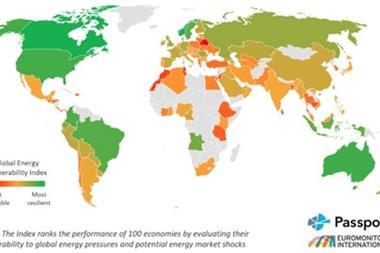Transcript of an interview StrategicRISK conducted with Willis chief Joe Plumeri
Your position is that Willis won’t accept contingent commissions because they represent a conflict of interest. Is that correct?
Yes, it’s not new. I took the decision in October 2004, well before Spitzer made us stop taking them, if you like. In 2004 I said we would not take them because I thought they were a conflict of interest for a whole bunch of reasons. Firstly I did not think it was proper to represent a client and also get paid for putting volumes of business to an insurer, even though the insurer may not be the best solution for our clients’ problems. And secondly I did not feel that by taking profit commissions that that practice was in the best interest of our clients, because one of our jobs is to ensure that our clients’ claims get paid. If a claim gets paid, by definition the profitability of the insurance company is lessened. So as a result I should do everything we possibly could to make sure the claim gets paid when I’m being motivated not to get the claim paid. That made no sense to me. And that plus the fact that when you are getting paid extra for things from someone else other than your client, you’re not motivated to do the best you possible can for your client your servicing may not be the best, this is all anecdotal, but think about it, you don’t have to be inventive, you don’t have to be creative, you don’t have to be hard working. You don’t have to be all those things because you don’t even have to have a value proposition, all you have to do is to say you will place the business and you get paid from all over the place.
I’m also against putting business with carriers and then winning a trip some place, it’s all the same thing. I think it’s an archaic system that needs to go away. I can’t make it go away but I can disallow it from happening here. I don’t believe for a minute that it hurts the economics of my company, because I think there are clients that would love to do business with us because we stand for integrity. At a time when trust is a big issue in the world, the underpinnings of the financial crisis came from a lack of transparency, people didn’t really know what was going on in the financial system, and people weren’t educated about what was going on. And then when everything hit the fan everybody started to question things which led to mistrust. So you now have I think the biggest fall out from the economic crisis is really a crisis of trust.
I agree. I think you are the only chief executive from the big three brokers to come out and say we will not accept contingent commissions.
That’s right.
Do you think you are at a competitive disadvantage because how can you compete with Aon and Marsh if they revert to accepting contingents, because they could make a lot of money from that?
Well I’m not sure about how much money they are going to make. In the intervening years since all of this occurred, obviously for all the contingents that were being paid what we did is go back to the insurers and say we want to be paid up front for what we do. So in a lot of cases the economics have already been exhausted. I’m not sure there’s much economics left, especially in a commission business. In the fee business, which is the practice of charging a fee and then adding a contingent commission on top of that, it remains to be seen what occurs there. What could occur is that a competitor that takes contingents could low ball the fee in order to win the account and then get paid the differential or more from the carrier. It’s my hope that the clients see past that, because at the end of the day someone is paying for it. And it’s my hope that people will realise that it’s still money and its got to come from some place and ultimately it comes out of the insured. I don’t know how much of a competitive disadvantage there will be, I will have to see how that all plays out but I like the position we are in though.
The other brokers are saying transparency is enough, and even some of the buyer associations are saying the same: That as long as brokers are transparent about the fees they receive then that’s enough. Do you agree?
No I don’t agree. I think that is lip service transparency. There are a lot of things that you know are wrong that are not necessarily illegal. And there are a lot of things that people are allowed to do, but even though they are allowed to do it it’s not right. There are a whole bunch of things in life that you just should not do because you should be guided in business and in life on your principles not on what’s regulated.
So do you think as it stands the other big brokers are not acting in the best interest of their clients?
Well if they take contingents I don’t think they are. I don’t think any broker that takes contingents is acting in the best interest if they are representing a client. There are lots of cases where we represent the insurance company and as a result get paid by the insurance company because we are not representing the client. In a lot of our wholesale businesses that’s the case. And I do not have any problems with getting paid by the insurance company there simply because that’s who our client is, if you will. But when you’re in the retail brokerage business and your representing a client on a direct basis I don’t think the practice of taking these is good.
It seems like a strange move by the New York insurance regulator to open the door to contingents again?
Well, I actually think in a strange way they were trying to level the playing field that was unlevel by process of elimination. In other words, if there are three companies that cannot take them but there are thousands of companies who can you’ve got to cry foul, because that’s an unlevel playing field. You either get the thousands to not take them by lawsuit, legal process, whatever the case may be. Or you tell the three that they can take them—now it is level. So I think that’s what happened. I’m not sure that this was done necessarily because they believed that they were good, I think that they were done because this was the best way for them to level the playing field.
Would you support a move in totally the opposite direction, which would be a global ban on contingents?
Yes you would but it would have to take a lot of governance and a lot of attorney generals, and a lot of regulators to agree. So I don’t know if the logistics are possible that’s why I can’t wait around for that to happen because it is virtually impossible. So obviously we made the decision to do what we have to do.
I hope that by virtue of discussions like this and by making my point that the buyer, which goes back to the question of competition, that the buyer thinks twice. I’m really not sure whether they think about the conflict, whether they think about the fact that—if a broker introduces a buyer to a carrier or market because they think that that market is the best for them, have they ever thought about those meetings and said am I being taking to this insurer because its in my best interest or because my broker is getting paid more. I’m not sure anybody ever thought about that. Or because there getting paid more because of a profit contingent they’re getting if my business is good. I think the more people think about this and the more they can be educated through these kinds of dialogues that they’ll stop and think about it. And the best way to regulate contingents out of business is the buyer basically doing it. You have a buyer’s revolt. I hope that happens and then you really have a level playing field.
I’ve also heard the argument that by removing contingents altogether it removes a revenue stream from brokers and therefore they’re not able to service their clients’ needs because they don’t have the revenue stream to do that?
Well that’s silly. You’re supposed to run a business so that the revenues you generate are properly allocated in your expense base to be able to run a good business. Willis is a perfect example of that. We have not taken contingents for five years and for those five years are revenues have grown greater than anybody in our business that reports on a public basis, even people who take contingents. And secondly we have been the most profitable. So we have figured out a way to service our clients, generate revenue and have a fair return on our business. So the notion that it stunts your growth or impedes your ability to service your clients because your revenues are not being generated sufficiently in able to do that is not true because we’ve proven otherwise.
If we accept that all of the big three have driven out of their business, they don’t rely on that income anymore. If the other two, if Marsh and Aon decide to go back to it, are you still going to take the same opinion?
Yes. My opinion is not based on what other people do. My opinion is based on what our principles are. They may be guided by a different set of principles and that’s their business. We don’t run this place based upon what a regulator tells us we can do or can’t do. You should do it because you believe it’s the right thing to do. I think it poses the question of a rule based society versus a principles based society. I’d rather be in a principle based society than a rule based one.
Can you say with 100% certainty that there are no contingent feed paid to Willis in any form in any part of the business?
When we are agents for an insurance company we get paid from the insurance company a contingent because we represent them and not the client. And the people who are putting their business through us are usually brokers who represent clients. And the other place where we take a contingent which people misunderstand, is we made an acquisition of HRH (Hilb Rogal & Hobbs) about a year and a half ago and they took contingents. And the reason we took them was only to make the economics of the sale possible, because if we did not take them then we would not be able to buy the company because it would not be legitimately competitive in terms of our price to buy them. So I got permission to take them for three years so that it could satisfy the deal. And what we set out to do was to replace the contingents with upfront commissions as fast as possible. And that’s exactly what we did. So far over 90% of the contingents have been replaced by upfront commissions when I still have a year and a half to take them. 90% are gone, have been exhausted, have been replaced. So yes we took them in order to do the deal, because my company was at a disadvantage because of this unlevel playing field where they could take them and we couldn’t. But we quickly replaced them with upfront commission, which tells you a lot about us and conviction we have, otherwise we would have just coasted for three years.



















